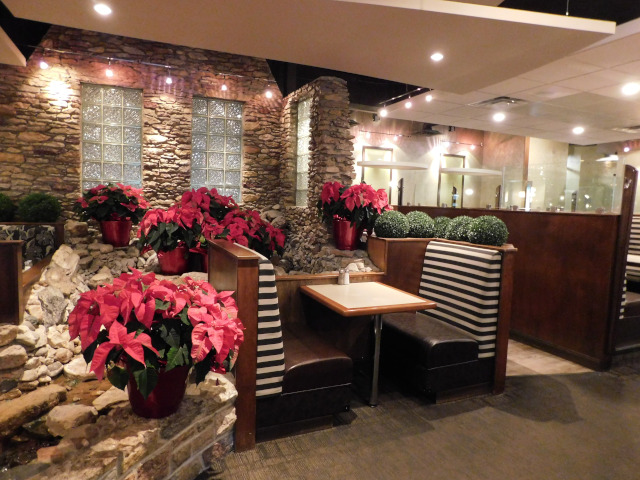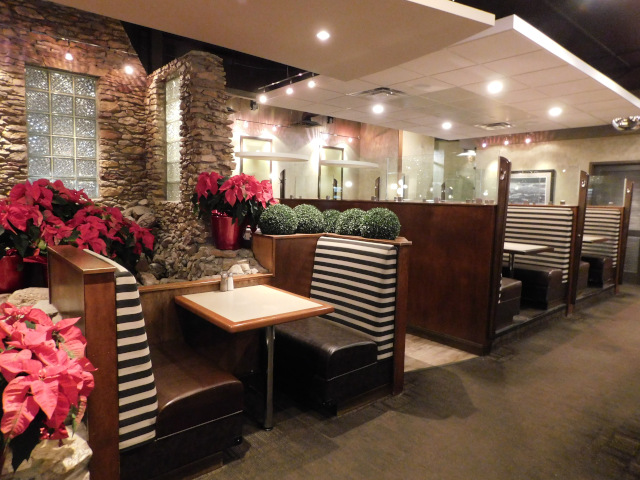
I will apologize, at once, for an inexcusable pun in my title—I mean “tipping” as in voluntarily adding money to a restaurant bill to pay the server directly. At the same time, I do also mean that we might just have reached a point when we can recognize that tipping is a demeaning, demoralizing, exploitative practice that needs to end.
Now after that provocative statement, I should write a proper introduction and ease all my readers into a topic that requires gentleness and diplomacy:
Some weeks ago now, on CBC’s The Current I heard Matt Galloway interview Corey Mintz, a chef, a restaurant critic and an author, concerning his latest book The Next Supper: The End of Restaurants as We Knew Them, and What Comes After. Mintz begins with the plain fact that restaurants are among the businesses most affected by the pandemic. All of a sudden, we Canadians, who typically eat out rather often, who can barely imagine getting together with friends without visiting some coffee shop, bar, or restaurant, couldn’t visit any of those places except to take out food to eat at home, with only our household. It was a terrific shock to our system. Now that health restrictions have eased, in some places, and dining out is possible again, owners are having trouble finding staff. That would indicate that something’s wrong. Perhaps plenty of things.
As I listened to Galloway and Mintz talk about what it’s like to work as a cook or as a server or as an owner, I remembered my own years-long experience as a restaurant server, first in summers only so I could pay for my university education, then full-time for a few years because other jobs proved unattainable and the rent needed to be paid. That meant serving the public, trying to adhere to the principle of “the customer is always right” (although I knew very well that customers could be foolish, ignorant, and downright mean), and depending on the tips to make ends meet. Even then, even when I walked home with pockets heavy from collected change—and bills—I had hated the practice of tipping.
Here’s why I felt that way, and there’s no ranking order to my objections:
It allowed my various bosses to pay me the minimum wage without regard to how much experience I had, how efficient I might be in getting the work done, or how willing I was to do the backroom jobs (making salads, cleaning work stations, cleaning the ice cream dispenser, etc.) that not only earned me no tips but reduced the time I could have spent on the floor earning tips. According to Corey Mintz, in some provinces, wage laws allow restaurants to pay even less than minimum wage because of tipping. In fact, Mintz talked about high-end restaurants that don’t pay their staff at all; they “allow” them the “privilege” of working in the establishment, leaving them entirely dependent on the generosity of patrons. This is demeaning. As Mintz pointed out, we wouldn’t dream of paying our dentists or electricians in that fashion. It is utterly unprofessional. Isn’t it time that we recognized that serving food and wine to the public is also a profession and worthy of dignity?
Tipping corrupts the relationship between server and served. I did not initially understand that because my first job was in a private businessmen’s club (and yes, it was only men back then) where tipping was automatic and official. A percentage was added to all bills and given to the wait-staff as part of their paycheque. So I could treat all customers with respect and offer good service, simply because that was my job, not because it might garner more tips. Not until I got into a hotel dining-room, and later into a nightclub, did I realize how quickly servers learn to evaluate all customers according to their tipping potential. The best service is offered to those who are deemed to be well-off and sophisticated. The customer who hesitantly chooses the cheapest item on the menu will not be served with the same alacrity and promptness as the customer who begins with a pricey wine. I was often ashamed of the way that I viewed people as tip-dispensers or tip-withholders, but it seemed inevitable.
Because customers are tip-dispensers, servers are tempted to see one another as competition rather than as allies. I witnessed angry arguments over who got which section of the dining-room, nasty allegations of tip-stealing off the tables (back when cash was the primary method of payment), refusals to assist other servers unless some portion of the tip was surrendered. There were quarrels when servers lied about their take to avoid sharing more of it with the cooks or bartenders or busboys, not to mention the assumption that one did not report tips on income tax forms. All of that, too, was demeaning.
Of the deep embarrassment of receiving an exorbitant tip from someone too drunk to tell the difference between a dollar bill and twenty dollar bill, I would prefer to say little. My shame is even deeper when I remember the brief weeks in a nightclub when I gave in to the temptation to overcharge obstreperous and obnoxious customers. My friend and fellow server first suggested it as a way of getting back at customers who were rude and difficult. I gave the subversive practice its name – “an aggravation charge.” It was of no financial benefit to us because the bills were paid to the house, yet it allowed us to feel, briefly, as if we had some agency, some way of redressing the frustrations of having to be obsequious to the most boorish of customers. While strictly speaking, this had nothing to do with tipping, I see now that it was part and parcel of the lack of dignity that with which servers were generally treated then. According to Mintz, that lack of dignity is still the issue. Tipping, after all, had its origins in the days of slavery when one would throw a coin at a slave and demand a dance or other favour.
In the years after my server days, I dutifully tipped whenever I ate out and encouraged whatever companion I was with to do likewise. What is far more important to me is that I didn’t forget what I had learned backstage in the restaurant. It was my duty – no, my privilege – to treat servers fairly and respectfully. They were fellow human beings who were sharing their time and skills with me, never mind the corruptions of the system which hired and paid them (as little as possible, of course).
If, in my city, a restaurant was established that made tipping obsolete and paid its staff appropriately, I would happily patronize it – when I’m ready to return to eating out. There is a particular pleasure in savouring a meal without having had to cook it or serve it or feel obligated to help in someone else’s kitchen. All of those are tasks that I have happily done; it’s part of the privilege of living with others and sharing food with friends and extended family. Nevertheless, the joy of eating out and having what Mintz calls a “magical evening” is worth enough that I believe we should extend dignity to all the skilled people who can make it happen. They are professionals, or are on their way to becoming professionals, and I would be glad to know that they have been adequately trained and are paid with a decent salary.
No work is insignificant. All labour that uplifts humanity has dignity and importance and should be undertaken with painstaking excellence.
Martin Luther King, Jr.

